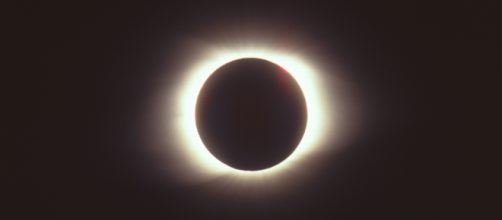On Monday, August 21, 2017, all of North America will see something they haven't seen in nearly a century -- a Total Solar Eclipse. This rare phenomenon will stretch across 48 states, reaching from Oregon to South Carolina. According to NASA, a sight like this won't be seen again in America until 2024.
Why is this special?
A total solar eclipse is a celestial event that occurs when the moon passes between the Earth and the Sun, blocking solar light. Tomorrow's eclipse is particularly special because when solar eclipses happen in America, they are typically only visible in a small section of the country.
Due to North America's vastness, it is very rare that one is able to be seen from coast to coast. The Northwest was the last to see a total solar eclipse in 1979, but the rest of the country hasn't seen one since 1918.
Where?
The eclipse will only be seen in totality in portions of 14 states -- Oregon, Idaho, Wyoming, Montana, Nebraska, Iowa Kansas, Missouri, Illinois, Kentucky, Tennessee, Georgia, and North and South Carolina. The rest of the country, including parts of South America and Europe, will be able to see a partial solar eclipse. Since so many people will see this phenomenon, it is predicted that this eclipse could be the most viewed solar eclipse in history.
What time?
Times vary depending on where you are in the country.
Totality will begin in Oregon at 10:16 a.m. PDT and end near Charleston, South Carolina at 2:48 p.m. EDT. The path of totality will only reach a 70 mile radius. Naturally, the closer you are to the center of the path, the longer the eclipse will last. But even then, the longest the moon will cover the sun is 2 minutes and 40 seconds. People who are closer to the edge of the path might only see the eclipse for a few seconds.
Get your glasses
For anyone who is planning on viewing the solar eclipse, it is recommended that you purchase special solar viewing glasses. These can be purchased at your local Best Buy, Target, or CVS. Looking into the sun at any time is damaging to your eyes, especially with the added harshness of the solar eclipse rays.
It's important to buy the right solar glasses because regular sunglasses can't protect your eyes from the solar light. Solar viewing glasses are equipped with solar filters, which filter out ultraviolet and infrared light. These glasses are the best to have to achieve maximum visibility before, during, and after the eclipse.
Most importantly, remember to go outside and see if you can see a partial or total eclipse yourself! If you're not able to see the eclipse clearly from where you are, multiple media sources (NASA, Time, etc.) will be live streaming the event online.


